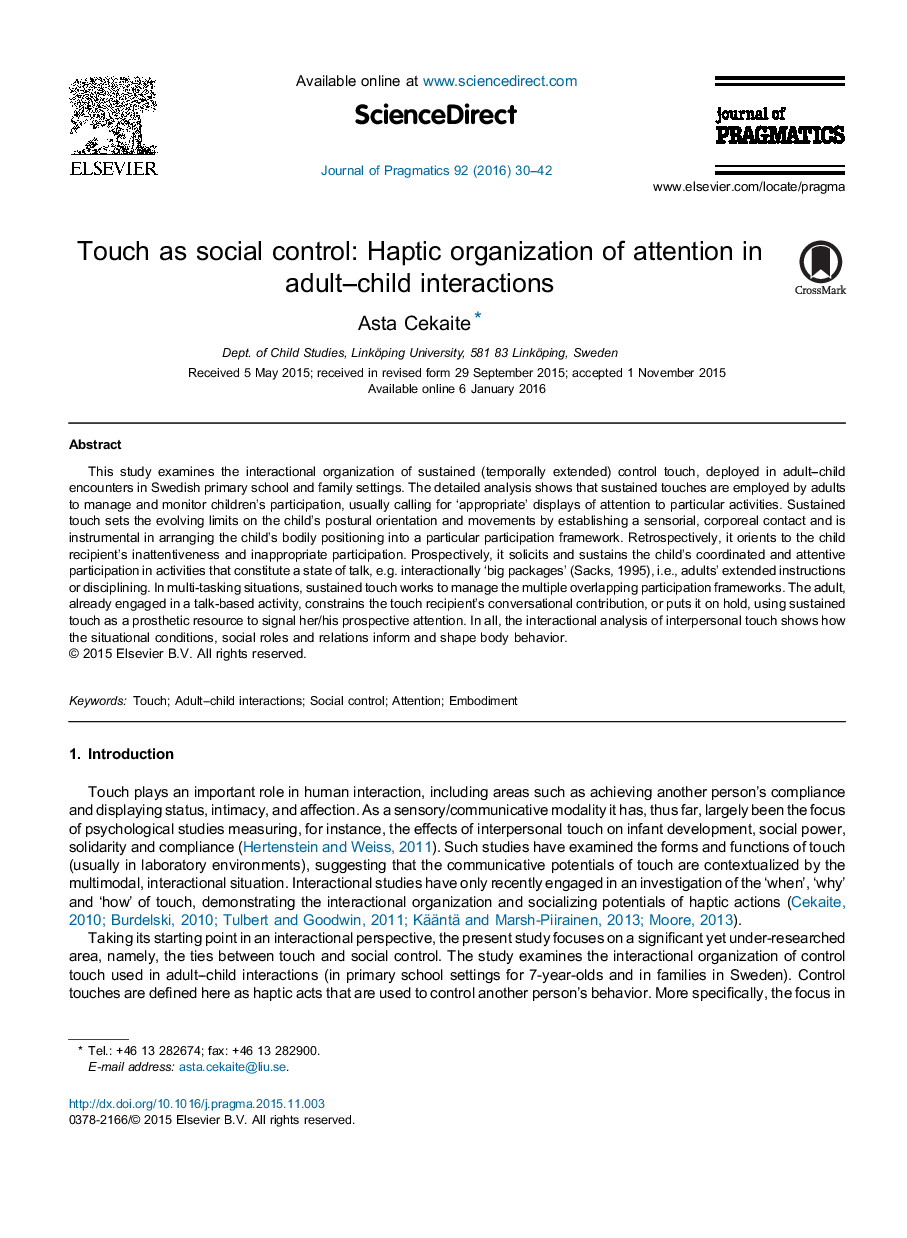| Article ID | Journal | Published Year | Pages | File Type |
|---|---|---|---|---|
| 932495 | Journal of Pragmatics | 2016 | 13 Pages |
•Temporally sustained touch is used by adults to monitor children's attention.•Touch is used organize, include or exclude someone from a participation framework.•Adults’ touch is temporally finely tuned to use of linguistic resources.•In multi-tasking situations sustained touch manages multiple participation frameworks.•Practices for organizing attention stretch beyond infancy and the preschool years.
This study examines the interactional organization of sustained (temporally extended) control touch, deployed in adult–child encounters in Swedish primary school and family settings. The detailed analysis shows that sustained touches are employed by adults to manage and monitor children's participation, usually calling for ‘appropriate’ displays of attention to particular activities. Sustained touch sets the evolving limits on the child's postural orientation and movements by establishing a sensorial, corporeal contact and is instrumental in arranging the child's bodily positioning into a particular participation framework. Retrospectively, it orients to the child recipient's inattentiveness and inappropriate participation. Prospectively, it solicits and sustains the child's coordinated and attentive participation in activities that constitute a state of talk, e.g. interactionally ‘big packages’ (Sacks, 1995), i.e., adults’ extended instructions or disciplining. In multi-tasking situations, sustained touch works to manage the multiple overlapping participation frameworks. The adult, already engaged in a talk-based activity, constrains the touch recipient's conversational contribution, or puts it on hold, using sustained touch as a prosthetic resource to signal her/his prospective attention. In all, the interactional analysis of interpersonal touch shows how the situational conditions, social roles and relations inform and shape body behavior.
